Potrebujeme váš súhlas na využitie jednotlivých dát, aby sa vám okrem iného mohli ukazovať informácie týkajúce sa vašich záujmov. Súhlas udelíte kliknutím na tlačidlo „OK“.
ASTM D5961/D5961M-13
Standard Test Method for Bearing Response of Polymer Matrix Composite Laminates
Automaticky preložený názov:
Štandardná skúšobná metóda pre ložiská Odozva polymérnej matrice kompozitné lamináty
NORMA vydaná dňa 1.5.2013
Informácie o norme:
Označenie normy: ASTM D5961/D5961M-13
Poznámka: NEPLATNÁ
Dátum vydania normy: 1.5.2013
Kód tovaru: NS-33213
Počet strán: 31
Približná hmotnosť: 93 g (0.21 libier)
Krajina: Americká technická norma
Kategória: Technické normy ASTM
Kategórie - podobné normy:
Anotácia textu normy ASTM D5961/D5961M-13 :
Keywords:
bearing properties, bearing strength, composite materials, ICS Number Code 83.120 (Reinforced plastics)
Doplňujúce informácie
| Significance and Use | ||||||||||||||||||||||||||||||||||||||||||||||
|
5.1 This test method is designed to produce bearing response data for material specifications, research and development, quality assurance, and structural design and analysis. The standard configuration for each procedure is very specific and is intended primarily for development of quantitative double- and single-shear bearing response data for material comparison and structural design. Procedures A and D, the double-shear configurations, with a single fastener loaded in shear and reacted by laminate tension or compression, are particularly recommended for basic material evaluation and comparison. Procedures B and C, the single-shear, single- or double-fastener configurations are more useful in evaluation of specific joint configurations, including fastener failure modes. The Procedure B specimen may be tested in either an unstabilized (no support fixture) or stabilized configuration. The unstabilized configuration is intended for tensile loading and the stabilized configuration is intended for compressive loading (although tensile loading is permitted). The Procedure C specimen is particularly well-suited for development of countersunk-fastener bearing strength data where a near-double-shear fastener rotational stiffness is desired. These Procedure B and C configurations have been extensively used in the development of design allowables data. 5.2 It is important to note that these four procedures, using the standard test configurations, will generally result in bearing strength mean values that are not of the same statistical population, and thus not in any way a “basic material property.” 5.3 It is also important to note
that the parameter variations of the four procedures (tabulated in
Section 5.4 General factors that influence
the mechanical response of composite laminates and should therefore
be reported include the following: material, methods of material
preparation and lay-up, specimen stacking sequence, specimen
preparation, specimen conditioning, environment of testing,
specimen alignment and gripping, speed of testing, time at
temperature, void content, and volume percent reinforcement.
5.5 Specific factors that influence the bearing response of composite laminates and should therefore be reported include not only the loading method (either Procedure A, B, or C) but the following: (for all procedures) edge distance ratio, width to diameter ratio, diameter to thickness ratio, fastener type, fastener shear strength, fastener torque, fastener or pin material, fastener or pin clearance, tensile or compressive loading, countersink angle and depth of countersink, type of grommet (if used), type of mating material, number of fasteners, and type of support fixture (if used). Properties, in the test direction, which may be obtained from this test method include the following: 5.5.1 Ultimate bearing strength, 5.5.2 Offset bearing strength, 5.5.3 Bearing stress/bearing strain curve. |
||||||||||||||||||||||||||||||||||||||||||||||
| 1. Scope | ||||||||||||||||||||||||||||||||||||||||||||||
|
1.1 This test method covers the bearing response of pinned or fastened joints using multi-directional polymer matrix composite laminates reinforced by high-modulus fibers by double-shear tensile loading (Procedure A), single-shear tensile or compressive loading of a two-piece specimen (Procedure B), single-shear tensile loading of a one-piece specimen (Procedure C), or double-shear compressive loading (Procedure D). Standard specimen configurations using fixed values of test parameters are described for each procedure. However, when fully documented in the test report, a number of test parameters may be optionally varied. The composite material forms are limited to continuous-fiber or discontinuous-fiber (tape or fabric, or both) reinforced composites for which the laminate is balanced and symmetric with respect to the test direction. The range of acceptable test laminates and thicknesses are described in 1.2 This test method is consistent with the recommendations of MIL-HDBK-17, which describes the desirable attributes of a bearing response test method. 1.3 The multi-fastener test configurations described in this test method are similar to those used by industry to investigate the bypass portion of the bearing bypass interaction response for bolted joints, where the specimen may produce either a bearing failure mode or a bypass failure mode. Note that the scope of this test method is limited to bearing and fastener failure modes. Use Test Method D7248/D7248M for by-pass testing. 1.4 The values stated in either SI units or inch-pound units are to be regarded separately as standard. The values stated in each system may not be exact equivalents; therefore, each system shall be used independently of the other. Combining values from the two systems may result in non-conformance with the standard. 1.4.1 Within the text the inch-pound units are shown in brackets. 1.5 This standard does not purport to address all of the safety concerns, if any, associated with its use. It is the responsibility of the user of this standard to establish appropriate safety and health practices and determine the applicability of regulatory limitations prior to use. |
||||||||||||||||||||||||||||||||||||||||||||||
| 2. Referenced Documents | ||||||||||||||||||||||||||||||||||||||||||||||
|
Podobné normy:
Historická
1.3.2008
Historická
15.4.2009
Historická
1.3.2014
Historická
1.2.2011
Historická
15.11.2013
Historická
1.9.2007
Odporúčame:
EviZak - všetky zákony vrátane ich evidencie na jednom mieste
Poskytovanie aktuálnych informácií o legislatívnych predpisoch vyhlásených v Zbierke zákonov od roku 1945.
Aktualizácia 2x v mesiaci !
Chcete vedieť viac informácii ? Pozrite sa na túto stránku.


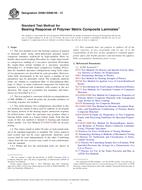
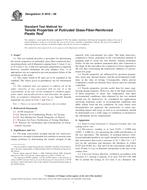 ASTM D3916-08
ASTM D3916-08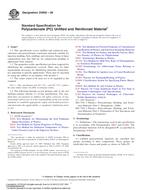 ASTM D3935-09
ASTM D3935-09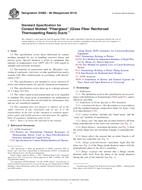 ASTM D3982-08(2014)..
ASTM D3982-08(2014)..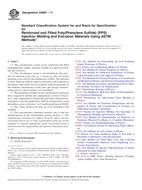 ASTM D4067-11
ASTM D4067-11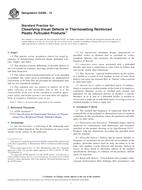 ASTM D4385-13
ASTM D4385-13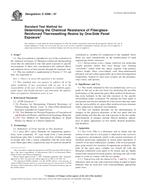 ASTM D4398-07
ASTM D4398-07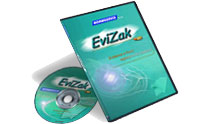
 Cookies
Cookies
